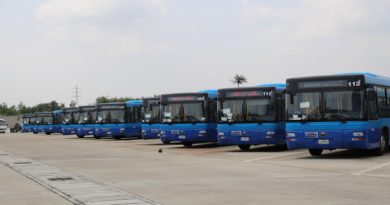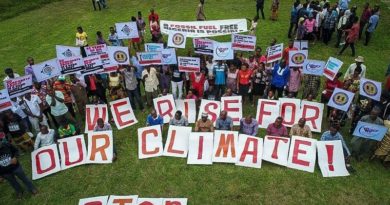Financial institutions pledge to sustain COVID-19 mitigation, livelihood recovery
Multilateral development finance institutions on Wednesday 21 October 2020 pledged to continue to collaborate in their efforts to mitigate the adverse impact of the COVID-19 pandemic and accelerate the recovery of economies and livelihoods.
At an extraordinary virtual meeting to discuss the impact of their responses to the pandemic and the worsening debt situation, the organizations said that sustaining their joint efforts would protect livelihoods, especially among vulnerable populations, preserve macroeconomic stability and promote a stronger private sector role after COVID-19.
The meeting, chaired by Hajjar Bandar, President of the Islamic Development Bank Group, was attended by the heads of 12 Multilateral Development Banks (MDBs). They discussed how to achieve maximum impact in their relief efforts, and the debt sustainability of beneficiary countries.
Bandar said the collaboration by the MDBs had proven meaningful in their efforts to swiftly provide crucial financial relief to member countries in the wake of the pandemic.
“In the face of this unprecedented crisis, we have shown our responsibility and unity…The total package has already started disbursing and is bearing fruits,” Bandar said.
The joint effort of the MDBs has seen a COVID-19 response envelope of about $230 billion. In addition, the IMF has provided financing to 81 member countries totaling over $100 billion since mid-March, with further room for member countries to tap into its $1 trillion lending capacity through program arrangements.
He urged members to sustain the collaboration to steer financing towards development, help communities out of poverty and spur digitization and promote education. “This forum is where partnerships make a difference. We need to join forces to support our member countries better.”
President of the African Development Bank Group, Akinwumi Adesina, said collaboration among development partners has become more vital than ever to help economies recover from the pandemic and attract private financing to rebuild infrastructure.
“We are really…in very extraordinary times. There’s no doubt about it, in terms of the devastation that this pandemic is causing. The challenge is huge and the collective resolve must be strong as MDBs,” he said.
He said efforts must be deepened to help member states mobilize more domestic resources and attract private creditors to participate in financing capital projects.
“It’s time for us to change the paradigm to get the private sector, with incentives, to do a lot of private-public partnerships,” Adesina said, restating the Bank’s commitment to helping Africa rebuild boldly and smartly.
The African Development Bank Group introduced a COVID-19 Response Facility (CRF) of up to $10 billion to support Regional Member Countries and private sector clients in their efforts to address the impacts of the COVID-19 pandemic.
MDBs represented at the meeting include the Islamic Development Bank (IsDB), Asian Development Bank (ADB), Asian Infrastructure Investment Bank (AIIB), Council of Europe Development Bank (CEB), the European Bank for Reconstruction and Development (EBRD) and the European Investment Bank (EIB), the Inter-American Development Bank (IDB), International Finance Corporation (IFC), International Monetary Fund (IMF), the New Development Bank (NDB), World Bank Group and the African Development Bank.



